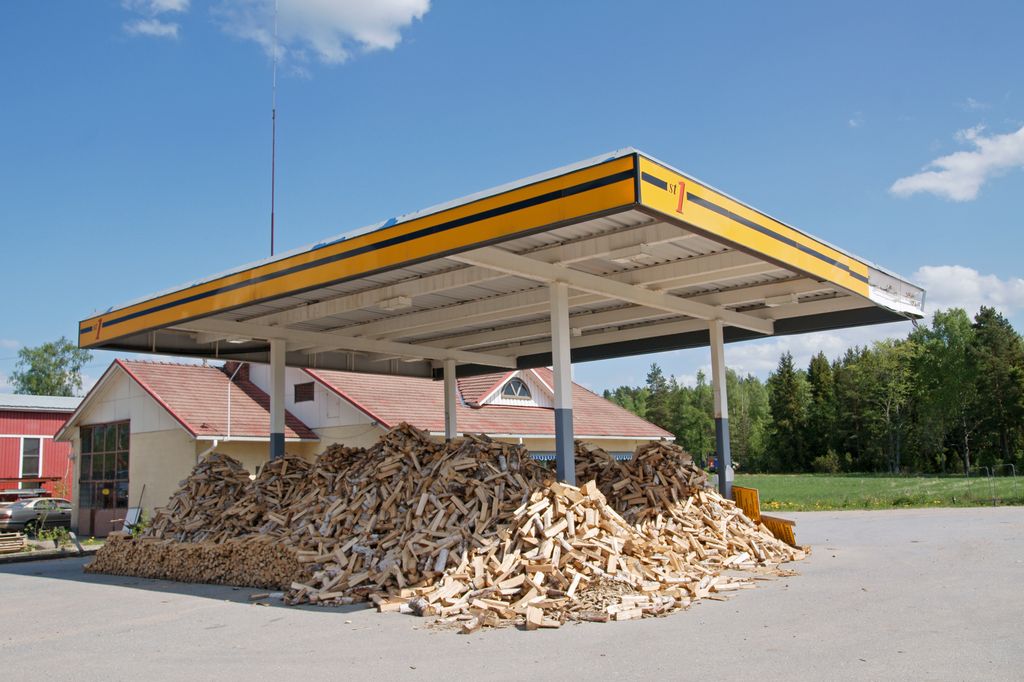
In 2013, a DC-8 took to the skies partly using an alternative kind of fuel. Incredibly, mixed in with the jet gas you'll expect was also biofuel -- plant-based fuel -- that in this case was based on materials from camelina plants.
While at first this sounds like a novelty idea, it speaks to the larger problem with vehicle emissions. Namely, the fumes that spew from our cars and trucks and planes contribute to the greenhouse effect surrounding Earth. We still have to get somewhere, so some hope that biofuels will be the answer.
"We believe this study will improve understanding of contrails formation and quantify potential benefits of renewable alternate fuels in terms of aviation's impact on the environment," stated Ruben Del Rosario, manager of NASA's fixed wing project, about the DC-8 project at the time. And it's just one of many ideas flying in researcher's heads about how to replace fuel in vehicles.

Perhaps a slight exaggeration of what a typical gas station could look like, with a biofuel option. Credit: Wikimedia Commons
The Encyclopedia Britannica defines biofuel as any fuel that comes from biomass, which technically means plant material or animal waste. Because these are things that occur naturally, biofuel is classified as a renewable type of energy, such as wind and solar.
Like any technology, however, it isn't perfect. "Many critics express concerns about the scope of the expansion of certain biofuels because of the economic and environmental costs associated with the refining process and the removal of vast areas of arable land from food production," the encyclopedia notes.
There also is the problem of making the fuel as efficient as possible, which is something that researchers are working on. At the Berkeley Lab, scientists working with yeast recently said they had been able to make it work better by "introducing new metabolic pathways" into the fungus. Specifically, their process made it easier to produce sugars (cellulose and hemicllulose), which could be used for biofuel in the future.

A hybrid biofuel car on display. Could these be a common view on the road shortly? Credit: Wikimedia Commons
So this is all great, but what about cars? National Geographic points out that the diesel and gasoline we use already are technically biofuels, but they are old; they come from already-dead animals and plants that have been in our soil for millions of years.
"Countries around the world are using various kinds of biofuels," the magazine writes. "For decades, Brazil has turned sugarcane into ethanol, and some cars there can run on pure ethanol rather than as additive to fossil fuels. And biodiesel—a diesel-like fuel commonly made from palm oil—is generally available in Europe."
But can we find the place to grow the plants? How do we find the energy and the resources and the time? It will take more efficient processes to make that possible. One idea the magazine suggests is using plants that have more cellulose such as grasses and saplings. This would give off even less carbon dioxide than the biofuels of today.
Top image: Contrails flow from a DC-8 that was testing a mixture of conventional fuel and biofuel. Credit: NASA/Eddie Winstead








